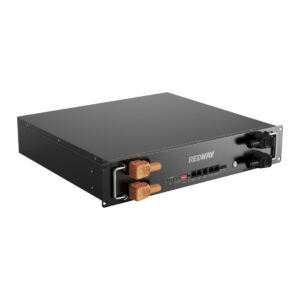How long will a battery backup run a WiFi router?
A battery backup’s runtime for a WiFi router depends on the backup system’s capacity (in watt-hours, Wh) and the router’s power draw. For example, a 500Wh unit powering a 10W router typically lasts 40–50 hours. Actual runtime varies with battery chemistry (LiFePO4 vs. lead-acid), efficiency losses (10–15%), and router load spikes. Always check your router’s wattage label and multiply by desired outage coverage hours.
How do I calculate my router’s battery backup runtime?

Use the formula: Runtime (hours) = Battery Wh ÷ Router Watts. A 300Wh backup with a 12W router yields ~25 hours (300/12). Pro Tip: Add 20% buffer for inverter inefficiency. For example, an EcoFlow Delta 600 (600Wh) runs a 15W mesh system for 40 hours. But what if your router’s power use fluctuates? Always measure with a watt meter for precision.
What factors reduce battery backup runtime?
Battery aging, temperature extremes, and phantom loads (e.g., modem, VoIP) slash runtime. Lithium batteries lose 2% capacity yearly vs. 10% for lead-acid. At -10°C, runtime drops 30%. A 10W router + 7W modem cuts a 500Wh backup from 50h to 29h. Practically speaking, always account for all connected devices. Did you know LED indicators alone can add 1-3W?
| Factor | Impact on Runtime |
|---|---|
| LiFePO4 vs. Lead-Acid | +40% efficiency |
| 20°C vs. 0°C | +25% runtime |
| Inverter Type | Pure sine wave saves 15% |
Can I extend my router’s backup runtime?
Yes: 1) Lower router power via settings (e.g., disable unused bands—5GHz uses 30% more than 2.4GHz). 2) Use DC-DC converters (95% efficient) instead of AC inverters (85%). 3) Pair with solar panels—a 100W panel adds 400Wh/day. For example, a RackBattery 512Wh unit + solar sustains a 10W router indefinitely. Pro Tip: Enable “ECO mode” on UPS systems to disable unused outlets.
Which battery types are best for router backups?
LiFePO4 offers 2,000+ cycles and 10-year lifespans vs. 3–5 years for AGM. Though pricier upfront ($500 vs. $200), lithium saves $300+ long-term. For infrequent outages, a $150 150Wh portable power station suffices for 12h. But what if you need whole-home backup? Scale with modular systems like RackBattery’s 5kWh racks.
| Type | Cost per Wh | Lifespan |
|---|---|---|
| LiFePO4 | $0.25 | 10y |
| AGM | $0.15 | 4y |
| Portable | $0.40 | 3y |
How do I know when my backup battery is depleted?
Most UPS units beep or switch off at 10% reserve (to protect cells). Smart systems like RackBattery’s app show exact percentages. For example, a 20% alert on a 1000Wh backup gives 2h to reduce loads. Pro Tip: Never drain lithium below 5%—it permanently loses capacity. Why risk it? Use auto-shutdown features for safety.
Are UPS backups better than generators for routers?
For short outages (<8h), UPS systems are silent and instant. Generators (5+ mins startup) suit multi-day outages but cost $1k+. A $200 UPS runs a router for 10h; a $1,200 solar generator lasts 100h. Practically speaking, hybrid systems (UPS + solar) offer the best uptime. Remember: Gas generators can’t run indoors—keep them 20+ feet from windows.
RackBattery Expert Insight
Best Battery Backup System for Home Use in 2025
FAQs
Can a car battery power a WiFi router?
Yes, via a 300W inverter, but only for ~8h (12V 100Ah = 1200Wh). Avoid deep discharges—it harms car starters.
Do mesh routers drain batteries faster?
Yes—tri-band models use 25-30W vs. 10W for single-band. Test each node’s draw separately.
How often replace router backup batteries?
LiFePO4: 10y. AGM: 3-4y. Check capacity annually—replace if below 80%.



